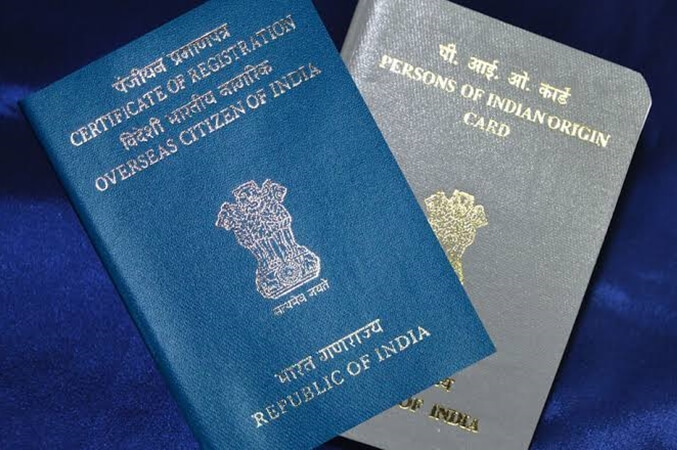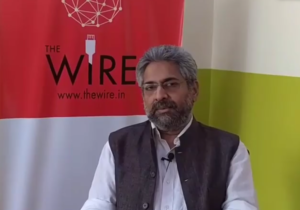With new OCI rules, India continues to distance from diaspora

OCI will have to get special permission from FRRO before being involved in any missionary or ‘Tablighi' activities, for conducting any kind of research or for journalism
Last week, in a sudden, though not very surprising development, the Indian government announced a flurry of changes to the rules governing the status and rights of the Overseas Citizen of India (OCI) cardholders. Now, any OCI will have to get special permission from the Foreign Regional Registration Office (FRRO) before being involved in any missionary or ‘Tablighi’ activities, for conducting any kind of research or for journalism. Special permissions would also be needed for mountaineering in India or visiting areas that have been notified as restricted, protected or prohibited. The OCIs will also need special permission before joining an internship with a foreign mission or in India or to visit any place which falls within the protected or restricted or prohibited areas as notified by the central government or competent authority.
Unlike earlier when OCIs were equated with Non-Resident Indians in terms of the definition of rights in India, the new rules equate the OCIs with foreign nationals, marking a sharp reversal of the policies that the Indian government has been following, notably since the arrival of Narendra Modi as Prime Minister of India in 2014.
Though the government has not given any reason in the terse press statement issued for the new rules, it appears to have stemmed mainly from two major embarrassments for the government. One is the ongoing farmers protest in various parts of India, notably around the capital New Delhi that has attracted a lot of attention, unwelcome from the perspective of the Indian government, all over the world, with dozens of leading members of the diaspora who have proactively supported the ongoing protests and criticised the government for not even engaging in a dialogue with the protestors.
The latest example of this overseas support for the farmers came on Monday from the British Parliament where several members conducted an in-depth discussion on ‘press freedom and safety of protestors in India’. The debate was the outcome of a petition moved by a Liberal Democrat politician Gurcharan Singh on the Parliament’s website. All petitions on this website that garner over 10,000 signatures need the British government to make a statement on the issue, while petitions that cross 100,000 signatures must be considered for a debate.
The list of petition’s supporters could read like the who’s who of the Indian diaspora in the British political world. It included Labour Party MPs Tanmanjeet Singh Dhesi and Preet Kaur Gill, who has been particularly vocal over the farmers’ protest. The debate led to widespread condemnation of the Modi government and the BJP in the handling of the farmers’ protest as well as rising incidents of attacks on journalists in India.
The Indian government reacted in an expected and strong manner, criticising the British MPs for interfering in internal matters of India, ‘the world’s largest functioning democracy’. Indian Foreign Secretary Harsh Vardhan Shringla summoned the British High Commissioner and conveyed “strong opposition to the unwarranted and tendentious discussion on agricultural reforms in India in the British Parliament”. In a statement, the ministry of external affairs said that the foreign secretary made clear that this represented a gross interference in the politics of another democratic country. “He advised that British MPs should refrain from practising vote bank politics by misrepresenting events, especially in relation to another fellow democracy,” the MEA said in a particularly scathing statement.
Tablighi & missionary work under a lens
The change of rules for those on missionary or ‘Tablighi’ work may have been due to the defeats that the government faced in several cases last year. Over the course of a few weeks in March and April 2020, hundreds of foreigners were arrested in different parts of the country for having attended a meeting of Tablighi Jamaat, a New Delhi-based Islamic theological group. Though the meeting got over days before the lockdown was announced on March 24 and there was no alert or ban on such congregations, the police, as well as mainstream national media, hurled unfounded allegations of being ‘superspreaders’ and charged with various crimes.
Hundreds of Muslims were subsequently locked up in prisons all across where they spent several months before their cases could even be taken up by the courts due to the lockdown and the subsequent limitations of the judges to take up cases rapidly. However, two months ago a series of blows were delivered by the judiciary to the police all over as court after court declared that the accused had done nothing illegal and released them on bail. Many of the accused have subsequently been acquitted and gone back home as well.
The curbs that the new rules bring on Muslim and Christian OCIs are highly discriminatory as OCIs of other faiths can continue to freely conduct spiritual work in India. The new rules also try to overrule the judicial precedents set in the recent rulings of several High Courts, including Delhi and Mumbai.
Muting media

Siddharth Varadarajan, one of the founding editors of The Wire will be impacted by the modified OCI rules
The modified OCI rules also remove journalism and research from the purview of the professions that an OCI cardholder can actively and freely engage in. This looks to have been inspired by the numerous reports in various foreign and a handful of domestic media vocally critical of the Modi government’s handling of various issues like farmers’ protests or the attacks on journalists or open attempts to stifle democracy.
One such person impacted by the changed regulations is Siddharth Varadarajan, one of the founding editors of The Wire, a digital news platform that has made itself well-known with its bold journalism, often highly critical of the government. As he is a citizen of the United States, now he will be obliged to obtain the government’s permission to be able to exercise his role as a journalist in India. One can perhaps easily foretell the outcome of such a request made by Varadarajan to the mandarins of the Indian government.
The targeting of researchers fits in well with another recent attempt by the government mandating all educational institutions that were either government-owned or government-funded to seek permission from the Ministry of External Affairs before being able to host an international seminar or webinar on a wide range of topics.
Though the notice has reportedly been withdrawn recently, these are clearly obnoxious attempts to muzzle any opinion that does not mirror the government’s position on practically any subject.
These rules take away important rights enjoyed by the OCIs and now push them more or less in the same bracket as foreign nationals. This pushback by the government is indeed a big chilling moment for its relations with the diaspora and goes on to undo a significant amount of outreach that the government had engaged in with the diaspora, which finds itself distanced solely due to their dissent.









